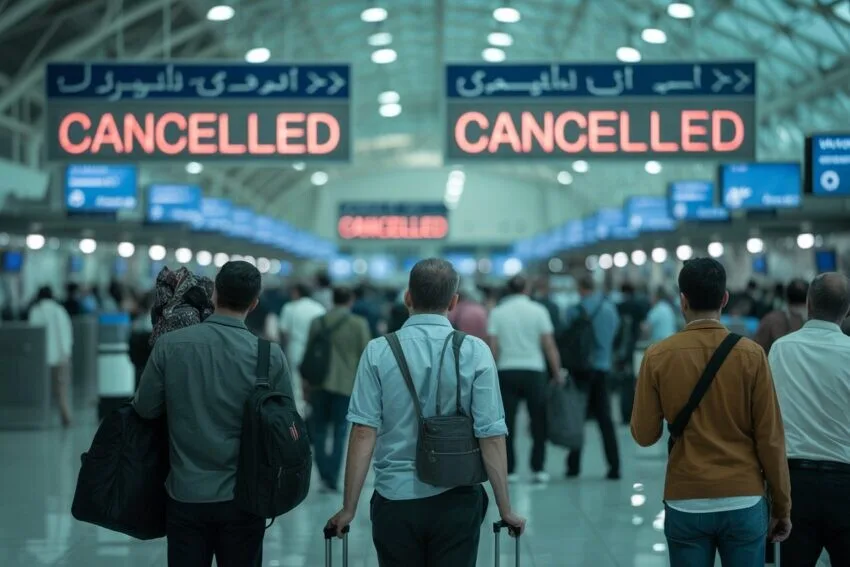Thousands of passengers have been left stranded in Saudi Arabia, Qatar, and the United Arab Emirates (UAE) after four major Middle Eastern carriers — Emirates, Saudia, Qatar Airways, and Air Arabia — cancelled a combined total of 27 flights this week.
The cancellations, which disrupted travel through some of the world’s busiest hubs — including Dubai, Riyadh, Doha, and Sharjah — have caused widespread delays, rebooking difficulties, and uncertainty for travelers on both domestic and international routes.
Airline Breakdown
- Saudia: The Saudi flag carrier cancelled nine flights between Monday and Wednesday, affecting routes from Riyadh (RUH), Dammam (DMM), Jeddah (JED), and Manila (MNL). Aircraft involved included Boeing 777-300, Airbus A320, and A321 models.
- Qatar Airways: Six cancellations were recorded on high-demand routes between Doha (DOH) and Hong Kong (HKG), Damascus (DAM), and Guangzhou (CAN), with wide-body aircraft including Boeing 777-300ER and Airbus A330-300 affected.
- Emirates: Six flights were cancelled from Dubai (DXB) and Al Maktoum (DWC), impacting connections to Hong Kong, Shenzhen, and Bangkok. Both Airbus A380s and Boeing 777s were among the affected aircraft.
- Air Arabia: The low-cost carrier cancelled five flights from Sharjah (SHJ) to destinations including Kuwait (KWI) and Doha (DOH), involving Airbus A320 and A321 planes.
Regional Travel Chaos
The disruptions highlight ongoing operational challenges in the aviation sector, with airlines citing fluctuating demand, logistical difficulties, and adjustments to flight schedules. For travelers, the impact has been immediate: long queues, missed connections, and limited rebooking options have created a ripple effect of delays across the region.
What It Means for Passengers
Airlines have advised travelers to monitor flight statuses closely, explore rebooking or refund options, and prepare for extended waiting times. With Gulf airports serving as major transit hubs for Europe, Asia, and Africa, the cancellations have also affected connecting passengers worldwide — including Greek travelers transiting through Dubai and Doha.
As carriers continue to adapt to shifting demand and operational pressures, patience and flexibility remain essential for those flying through the Middle East in the coming days.
(Source: Travel and Tour World)







